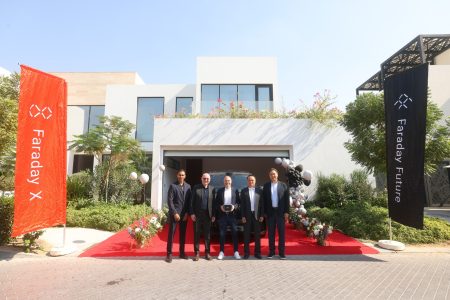Summarize this content to 2000 words in 6 paragraphs in Arabic One scoop to start: Wall Street banks are close to selling $3bn worth of loans backing Elon Musk’s takeover of Twitter, offloading another mammoth portion of a debt deal that has lingered on their balance sheets for more than two years.And another scoop: Nathan’s Famous, the iconic hot dog chain founded more than a century ago at New York’s Coney Island, is in preliminary talks about a sale, according to people briefed on the matter.In today’s newsletter:How ByteDance gets access to Nvidia chipsMore corporate activism rattles JapanAn ode to a Hong Kong legendBytedance’s workaround for Nvidia chipsData centres are a megatrend that in many ways have carried the private capital industry’s giants in recent years as overall dealmaking has slowed.Many of America’s biggest names have ploughed billions of dollars into data centres, drawn to the idea of backing the “picks and shovels” of the boom both in global internet use and in artificial intelligence.Those buyout groups typically seek to stay out of geopolitics. But in a world of US-China tensions, that’s becoming increasingly difficult.It turns out, Blackstone, Bain Capital, Warburg Pincus and General Atlantic have invested in data centre businesses with sites in Malaysia that count ByteDance as a tenant at a time when the TikTok owner is trying to build up its AI capabilities.Chinese companies have been banned from buying Nvidia’s highest-performing AI chips outside the US since 2023, but they’ve been able to secure access to them lawfully by renting space in data centres overseas, often in Malaysia, which contain the chips.Multiple people with knowledge of the matter have told the FT that ByteDance plans to use data centres in Malaysia to access high-end Nvidia chips.The US is now trying to stop them using that loophole. Rules announced in the final days of the Biden administration aim to stop Chinese groups from using the chips to build large language models and then transferring the resultant technology back to China.In some cases the private equity groups do not even know which chips their tenants are using in the data centres — and therefore whether the loophole was being exploited. If Chinese groups can no longer use the centres to access the chips, there is a risk that their data centre demand could fall.Buyout groups have tended to take the view that “you’re providing a building with electricity and a cooling system; the server and what’s in the server is not your business”, one PE executive told DD’s Kaye Wiggins. That may not be the case for much longer.Japan’s healthcare sector heats upJapan has for years been a difficult place to do private equity dealmaking, hostile takeovers or activist investing.Yet in recent months, some of the world’s biggest strategic corporations, private equity groups and hedge funds have been eyeing the country afresh.And in just the past two weeks, the pharmaceutical sector has become a particularly hot target.The most recent frenzy kicked off with Bain Capital’s $3.3bn deal for Tanabe Pharma, buying it from longtime owner Mitsubishi Chemical Group, in the largest-ever private equity deal in the country’s healthcare sector.From the private equity side of things, Japan is now one of the few markets where groups can deploy their Apac funds at scale. Many of them used to rely on China for business, but as those deals have dried up, firms have been left sitting on big funds with few places to deploy cash.Japan’s pharma industry is now drawing in an activist with a track record too.Farallon Capital Management, which is based in San Francisco, has taken a significant stake in Astellas, one of Japan’s biggest pharmaceutical companies. The fund oversees $39bn in assets and has built a more than 3 per cent position, making it a top-three shareholder.The stake is part of a wave of shareholder activism as governance reforms by the Tokyo stock exchange push companies to take investor demands more seriously. And it’s not Farallon’s first foray in the country. The fund brandished its name on corporate Japan’s memories with a contentious engagement with Toshiba, where it successfully installed an outside director shortly before the conglomerate was taken private.A thank you to David WebbTrade in Hong Kong, and chances are you’ll know David Webb.The activist and general thorn in the side of local executives and regulators has published pointed analyses, reported wrongdoing and maintained a public database on the territory’s companies, laws and market rules for more than 25 years.But no more. Webb announced on Wednesday that his cancer, which he first disclosed almost five years ago, is making it harder to function and as a result his eponymous webb-site will cease after the annual expiry of its US-based server contract.The one-time designer of early computer games used his coding skills as well as the investing nous garnered as a banker to retire in 1998 and turn public watchdog.Since then, notable moments have included a landslide election to the board of the Hong Kong stock exchange as an independent director (before he resigned), reporting suspected shareholder vote-rigging in 2009 involving one of the city’s top tycoons (the deal lapsed), as well as a data crunch that identified a web of company crossholdings he dubbed the “Enigma” network well before shareholders lost $6bn in their sudden 2017 collapse.That’s not to mention the companies he’s forced to reverse or revise questionable deals over the years.But beyond Webb’s campaigns, there’s huge value in a free database for a territory where surnames are few but spellings are many and Cantonese, Mandarin and English may all be different.Webb says he looked at moving his site to the University of Hong Kong in 2020. Faculty were keen. But in the months after a tough national security law was introduced by Beijing, university management said no.So use webb-site while you can.“I know that the database has been useful to journalists, regulators, researchers and of course investors, as they have often told me so,” says Webb.Yes, we have.Job movesBHP has picked former bank boss Ross McEwan to be its next chair, succeeding Ken MacKenzie, as expectations grow of a wave of dealmaking across the mining industry.QXO has told Beacon Roofing Supply that it will propose 10 independent directors at the company’s annual meeting, following QXO launching a hostile bid.Plurimi has hired Marcus Honig as head of wholesale distribution. He previously worked as head of wholesale sales at River Global Investors.Smart readsNext move Low fees made Vanguard a passive investing powerhouse, the FT writes. But as it pushes into wealth management and cash accounts, it needs to improve tech and service.RTO bind There’s a new front in the return-to-office battle, the FT reports. Some companies are not just stiffening their mandates but are increasingly monitoring attendance and using the data gathered in performance and pay reviews.All in With a massive artificial intelligence wager, SoftBank’s Masayoshi Son just made his most ambitious bet yet, Lex writes.News round-upChevron to slash up to 20% of its workforce (FT)NYSE to relocate 143-year-old Chicago stock exchange to Texas (FT)Prosecutors drop some charges against former Wirecard chief (FT)Ex-DeepMind scientist launches AI drug discovery venture (FT)UK competition regulator must be ‘less risk averse’, minister will urge (FT)Thames Water investigated over delayed environmental schemes (FT)Heineken leads European brewers’ shares rally as profits beat forecasts (FT)Close Brothers to set aside £165mn for car finance probe (FT)SoftBank falls to $2.4bn loss amid plans for huge AI investments (FT)
rewrite this title in Arabic ByteDance’s Nvidia chip arbitrage
مقالات ذات صلة
مال واعمال
مواضيع رائجة
النشرة البريدية
اشترك للحصول على اخر الأخبار لحظة بلحظة الى بريدك الإلكتروني.
© 2026 جلوب تايم لاين. جميع الحقوق محفوظة.








